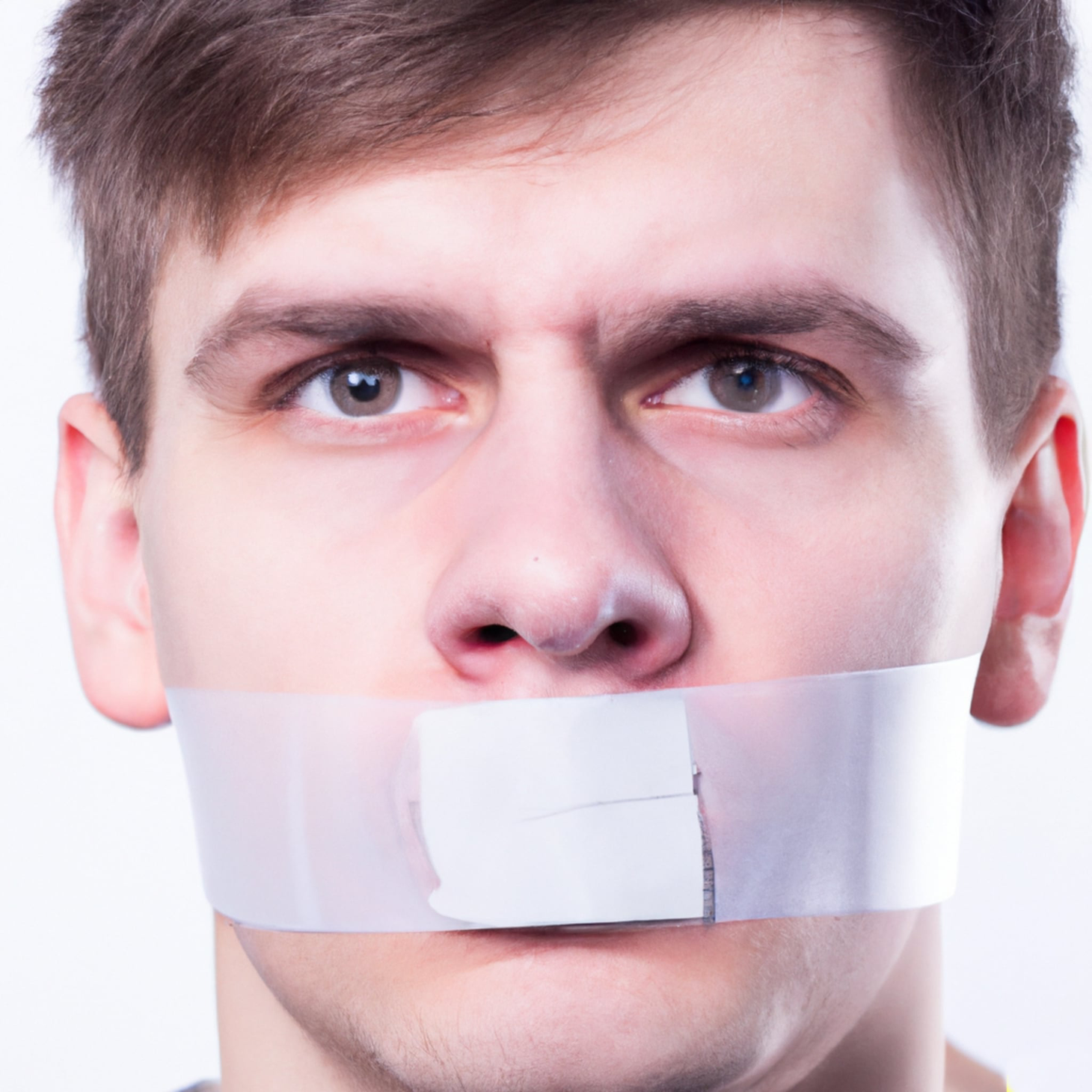Here's To Shutting Up
It might be time to consider silence a virtue.

I recently listened to an episode of the Art of Manliness podcast about the ability to shut up in a world that won't stop talking. The guest on the show was Dan Lyons, who recently wrote the book STFU: The Power Of Keeping Your Mouth Shut In An Endlessly Noisy World. Unfortunately, at least a few people who read Lyons' book thought the author himself had a problem shutting up. Ironically, Lyons couldn't help himself from putting partisan political jabs in a book where they didn't really fit the subject. "This tracks," as they say. These days, high on social media, people really have trouble suppressing their urges to get those little jabs in.
With so many places in which to express themselves, it's hard for people to resist the compulsion to overshare. This has lowered the bar for discourse and allowed a lot more hateful rhetoric to proliferate. As the nation grapples with laws that are bringing forceful disagreement, I see people more and more willing to almost casually demonize their ideological opponents. Just about a week ago, I read a statement that actor Wil Wheaton delivered at the Southern Kentucky Book Festival. The statement was made after new legislation called Senate Bill 150, which related to children and how sexuality is handled in schools, was introduced. The bill, at the very least, seems to be clumsily worded and confusing.
Wheaton included these lines about the bill and the people who support it in his remarks:
A cruel, deliberate effort by people who have nothing to offer but hate, to hurt as many people as they can, including children.
[…]
That it will actually hurt children and the people who love them is not a bug, it is a feature. The cruelty is the point.
Saying that people who are supporting the bill have "nothing to offer but hate" is a deeply dehumanizing statement. I can't think of any way to more vociferously denigrate the worth of your neighbors than by saying they have nothing to offer but hate. Regardless of whether you disagree with how sexuality is handled in schools, to say that those on the other side have no human worth and that they want to hurt children is a tactic that represents some of the worst tendencies of discussion and debate. There are places, such as Sweden and Finland, that have an entirely different view of topics like gender medicine. Are the Swedes and the Fins hate mongers as well? Do they prize cruelty to children? Or do they have a debate about these issues without the sort of rancor that's taken for granted now in the U.S.? I'm sure people in those countries may disagree (perhaps rightfully so) with the national stance in areas like this, but the arguments don't typically seem to take the same shrill tone.
I hesitate to use the word “desensitized,” because, despite their ubiquity, I think we are very sensitized to these kinds of statements. I know I am. As we see these things said over and over again, they become a kind of irresistible truth in our minds. Boosts and retweets just get the hyperbole so firmly entrenched that it’s no longer recognized as exaggeration. Anger wins the day.
Far from being unusual, though, remark's like Wheaton's are the standard mode of discourse now and praised by many in the U.S. In fact, I wouldn't have even come across the talk given by Wheaton if it hadn't been boosted on Micro.blog with a significant amount of enthusiasm attached to it. Of course, there are probably many examples of this that lean more right, but I'm not readily exposed to those and most people that I know tend to believe instinctively that those are wrong. Plenty of good people that I know, though, seem to adopt the view that hating people who are more conservative than they are is almost an imperative. Even on the Micro.blog network, which is usually pretty congenial, I've read Christians referred to as "demon assholes" and "myth believing cretins."
I write this following a tragedy in which a shooter walked into a conservative religious school and killed students and staff. The shooter wrote a manifesto, which is assumed to contain anti-Christian sentiment that drove the violence. The manifesto is expected to be released at some point after a review by psychologists. Russell Moore makes the point that this manifesto is probably not materially very different from what we have now become used to seeing every day online.
Yet I wonder about all the “manifestoes” we have seen. I’m referring not to the deranged screeds of mass murderers but to the hate and rage that have become so commonplace in our society that we barely even notice them anymore. How long can we live like this and pretend we are powerless to change it?
[…]
But can we seriously believe that such derangement is not influenced by a culture that now seems to be in a permanent state of limbic distress—a society in which hatefulness is so “normal” that the only question seems to be which group of people we should hate?
Many leaders—no matter their ideology or political or religious category—have decided that what “works” in this present moment is to convince people that we are in a constant state of emergency. And the emergency is so great that all the norms, manners, and habits that have kept a country like this together for so long are no longer operative.
Indeed, just after reading the piece that Moore wrote, I read what can very certainly be classified as a mini-manifesto on the social network Mastodon. It was from a person who calls himself "Bleak Future."
I hope this is a wake up call for people who aren’t taking this creeping christofascism seriously — they are coming for EVERYTHING that doesn’t fit into their worldview.
If you ever wondered what you would have done in WW2 or Jim Crow, you’re doing it now.
This call to arms came to my attention because it was boosted by popular blogger Jason Kottke. It sounds like a disturbing prelude to an act of violence, but to Moore's point, it's easily shared and boosted without regard to the hatred for neighbor that it engenders. I hesitate to use the word "desensitized," because, despite their ubiquity, I think we are very sensitized to these kinds of statements. I know I am. As we see these things said over and over again, they become a kind of irresistible truth in our minds. Boosts and retweets just get the hyperbole so firmly entrenched that it's no longer recognized as exaggeration. Anger wins the day.
To be clear, I'm not arguing for policing speech or even "self-censorship." What I would advocate, though, is a more mindful way of bringing your thoughts into the world. At the very least, you should give a thought to your ideological enemies as human beings. That should be a pretty low bar to get over.
This is where we are, and "Bleak Future" may be right about one thing and that is, if this is how we handle debate about difficult topics, we are indeed slouching towards a bleak future.



